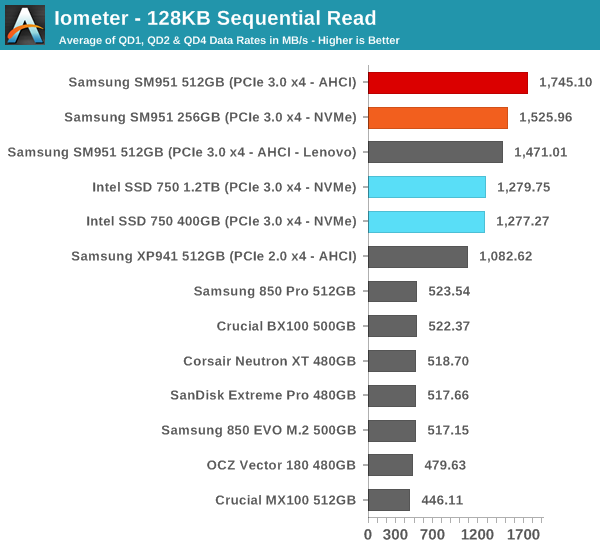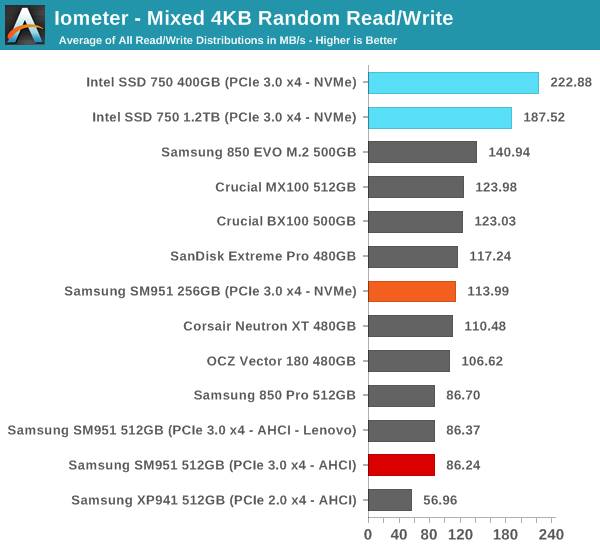Good morning.
I am currently building a new rig and I cannot decide myself on the SSD part.

From what I have read from reviews, both the Intel 750 NVMe and Samsung SM951 NVMe (to be released) are quite similar performance wise. The SM951 excels in managing low size files (more client / desktop based) and the Intel 750 in the bigger size ones in heavy load escenarios (more server / workstation based).
What I like the least about the SM951 is the lack of warranty (apart from the directly given by the shop) and the overheating issues. And that if you apply TIM and a heatsink, you void the warranty as you have to peel off the sticker. In this two terms, the Intel 750 is a clear winner here (5-year warranty and heatsink incorporated).
These are the price tags for each component:
The SM951 512GB AHCI is priced at 330€ (0,65€/GB)
The Intel 750 400GB NVMe is priced at 400€ (1€/GB)
The SM951 512GB NVMe is expected to be priced somewhere in between, so it will have much better value than the Intel 750 400GB NVMe.
Which one would you buy for an enthusiast user? I will be doing pretty much CAD/3d rendering/Finite element calculus (AutoCAD, 3dsMAX+VRay, ANSYS, SAP2000...).
Thanks in advance.
I am currently building a new rig and I cannot decide myself on the SSD part.

From what I have read from reviews, both the Intel 750 NVMe and Samsung SM951 NVMe (to be released) are quite similar performance wise. The SM951 excels in managing low size files (more client / desktop based) and the Intel 750 in the bigger size ones in heavy load escenarios (more server / workstation based).
What I like the least about the SM951 is the lack of warranty (apart from the directly given by the shop) and the overheating issues. And that if you apply TIM and a heatsink, you void the warranty as you have to peel off the sticker. In this two terms, the Intel 750 is a clear winner here (5-year warranty and heatsink incorporated).
These are the price tags for each component:
The SM951 512GB AHCI is priced at 330€ (0,65€/GB)
The Intel 750 400GB NVMe is priced at 400€ (1€/GB)
The SM951 512GB NVMe is expected to be priced somewhere in between, so it will have much better value than the Intel 750 400GB NVMe.
Which one would you buy for an enthusiast user? I will be doing pretty much CAD/3d rendering/Finite element calculus (AutoCAD, 3dsMAX+VRay, ANSYS, SAP2000...).
Thanks in advance.
![[H]ard|Forum](/styles/hardforum/xenforo/logo_dark.png)




